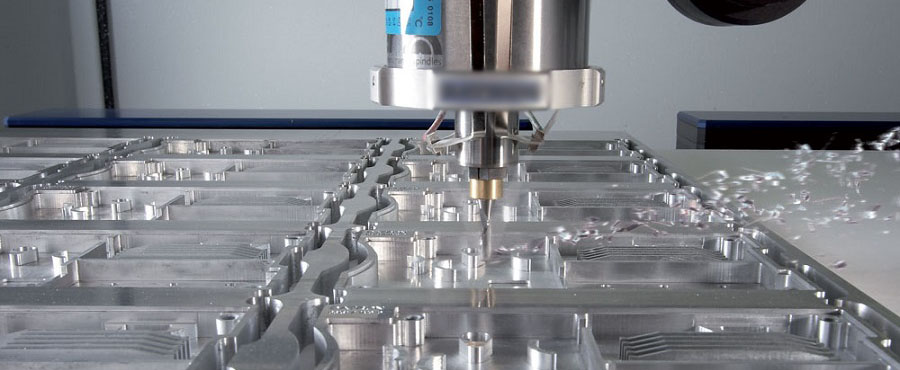CNC machining outsourcing is a widely adopted strategy by businesses looking to optimize manufacturing processes while reducing costs. Whether for prototyping or high-volume production, outsourcing provides access to expertise, advanced equipment, and cost-effective solutions. Whether you’re a small startup or a large-scale manufacturer, outsourcing your CNC machining requirements can help optimize production.
Below, we explore the benefits, challenges, and practical tips for successfully outsourcing CNC machining projects.
Benefits of CNC Machining Outsourcing
Whether it’s high or low-volume CNC machining, the concept is both a time and cost-saver for all production enterprises. Here are the benefits of outsourcing CNC machining:
Access to Advanced Equipment
Outsourcing provides access to state-of-the-art CNC machines without the need for upfront capital investment. Professional machining service providers often have high-precision equipment capable of handling complex designs and tight tolerances.
Excellent quality control
A key factor in improving the efficiency of CNC machining is first-class quality control. Excellent quality control is crucial for every production process, especially in dynamic markets like manufacturing. Thanks to CNC machining, every step of the production process can be programmed, ensuring excellent quality control.
Meanwhile, outsourcing makes your task execution more specific, thereby improving output quality and helping to maintain top-notch quality. When you outsource your CNC machining needs to a service provider, customers have more confidence in your products, and the service provider’s machines can maintain consistent quality across all projects.

Cost Efficiency
By outsourcing, companies can reduce operational costs, including those related to labor, equipment maintenance, and facilities. Service providers can leverage economies of scale, allowing businesses to save on production costs.
Expertise and Skillset
CNC machining providers specialize in producing high-quality components. Their expertise ensures that your parts are manufactured to exact specifications, reducing errors and improving product quality.
Scalability
Outsourcing offers flexibility for scaling production up or down based on demand. Whether you need a one-off prototype or thousands of units, outsourcing partners can adjust production volumes accordingly.
Focus on Core Business
By delegating machining tasks to external providers, businesses can focus on their core competencies, such as product development, marketing, and customer relations.
Access to a Global Network
Outsourcing allows companies to work with providers worldwide, ensuring competitive pricing and access to specialized capabilities that may not be available locally.
Challenges of CNC Machining Outsourcing
Outsourcing CNC machining may provide numerous advantages, but it comes with its own downsides. From losing partial control over the process to increased logistics and shipping costs, here are the challenges of CNC machining outsourcing:
Quality Control Concerns
Ensuring that the outsourced parts meet your quality standards can be challenging. Without proper oversight, there’s a risk of receiving defective or subpar components.
Communication Barriers
Working with international providers can lead to miscommunications due to language barriers, cultural differences, or time zone gaps.
Intellectual Property (IP) Risks
Sharing sensitive designs or proprietary information with external partners poses risks to intellectual property protection.
Logistics and Lead Time
Outsourcing projects to distant locations may result in extended lead times due to shipping, customs delays, or unforeseen disruptions.
Hidden Costs
Unexpected expenses, such as setup fees, shipping, and import duties, can make outsourcing less cost-effective than anticipated.
Success Tips for Outsourcing CNC Machining
When employing the concept of outsourcing CNC machining, you have to develop a good method of reducing the challenges and maximizing the benefits. One of the ways to achieve this is by choosing the right partner for your outsourcing.
Clearly Define Your Project Requirements
Provide detailed specifications, including materials, tolerances, surface finishes, and production timelines. The more precise your requirements, the better your provider can deliver.
Choose the Right Provider
Research potential providers carefully. Look for those with proven experience in your industry, positive reviews, and certifications such as ISO 9001 for quality assurance.
Inspect Samples Before Full Production
Request prototypes or sample parts to verify the quality before committing to large-scale production. This helps identify issues early and ensures the provider can meet your expectations.
Communicate Effectively
Establish clear lines of communication. Use detailed drawings, CAD models, and written documentation to reduce misunderstandings. For international providers, ensure they understand your language and technical terms.
Focus on Quality Control
Ensure that the provider has robust quality assurance processes, such as regular inspections and testing. Specify your quality standards and ask for reports or certifications with the finished parts.
Protect Intellectual Property
Use non-disclosure agreements (NDAs) to safeguard your designs and proprietary information. Work with providers who have a strong reputation for IP protection.
Plan for Logistics
Account for lead times and shipping costs in your production timeline. Work with providers who have reliable logistics systems to minimize delays.
Build Long-Term Relationships
Establishing a long-term partnership with a trusted provider can streamline future projects and reduce setup times. Consistent collaboration also fosters better communication and trust.
Conclusion
CNC machining outsourcing can be a game-changer for businesses looking to reduce costs, improve production efficiency, and access advanced capabilities. However, it requires careful planning and due diligence to overcome challenges such as quality control, logistics, and IP protection. By choosing the right provider, maintaining effective communication, and focusing on quality, businesses can maximize the benefits of CNC machining outsourcing and achieve long-term success.
Outsourcing isn’t just a cost-saving measure—it’s a strategic advantage that allows companies to focus on innovation and growth.



